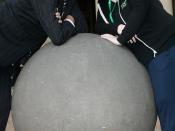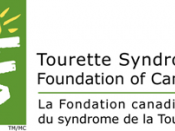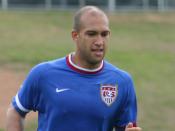Tourette Syndrome Introduction
--------------------------------------------------------------------------------
Tourette Syndrome is also referred to as Tourette's Disorder, Tourette's, TS and sometimes Tourette Spectrum Disorder.
Tourette Syndrome is best defined in the archives and pages of neurological conditions, syndromes, and disorders. Initially Tourette Syndrome was seen as extremely rare and an individual was viewed as having violent muscle contortions (motor tics) and vocal disruptions (vocal tics) combined with outburst of swearing and obscenities. However Dr. David E. Comings writes in Tourette Syndrome and Human Behavior, "...TS is one of the most common genetic conditions affecting humanity and many more carry the trait."
--------------------------------------------------------------------------------
Tourette Syndrome is a neurological disorder characterized by involuntary body movements and vocal outbursts (Tics) for at least 12 months.
Note there are no longer any requirements for severity or impairment.
The reason for having the tics for at least 12 month is specified is because transient tics - a brief period or one-off episode of tics - are really common in children (occurring in around ten per cent) and these people get better.
--------------------------------------------------------------------------------
Tourette Syndrome is named after a French physician, Georges Gilles de la Tourette, who first described Tourette it in 1885. Tourette Syndrome commonly appears in childhood, more often in males than females, and may worsen thereafter or subside. The absolute cause of Tourette Syndrome is unknown, nonetheless many theories and advanced information has increased considerably since 1885.
--------------------------------------------------------------------------------
No cure yet exists, but symptoms are often treatable with various RX medications, behavioral therapy and alternative treatments. It should be noted that there is not any peer reviewed scientific evidence, yet, of success with "alternative therapies." Even results of behavioral therapy are unclear long-term, and are going to be studied on a well-designed TSA grant possibly starting in 2004.
--------------------------------------------------------------------------------
The "tics" symptoms involving Tourette Syndrome are known...


